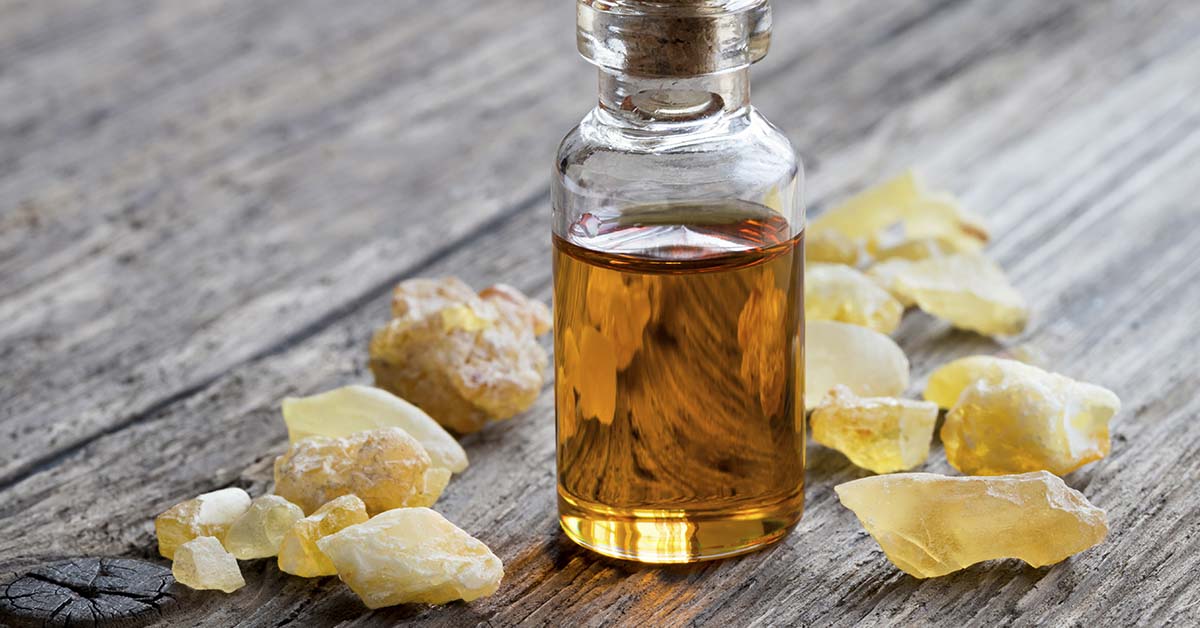Frankincense is popularly used in traditional medicine to treat a wide variety of conditions. Also known as olibanum, frankincense is derived from the resin of Boswellian trees. It has a spicy and earthy scent and it could be found in the form of supplements, candles, lotions, and essential oils.
The Health Benefits of Frankincense

Although it has many proven benefits, some claims have little to no evidence of efficacy. So let’s discuss the science-backed benefits, the myths, and the best way to use frankincense.
Reduce Arthritis

Frankincense has anti-inflammatory properties that could help reduce symptoms of arthritis. Researchers theorize that frankincense may help prevent the release of compounds that cause inflammation. In particular, frankincense contains terpenes, compounds with the strongest potential anti-inflammatory properties. Boswellic acid is one of these terpenes, and studies have linked this ingredient with reduced inflammation and pain associated with arthritis. However, many of these studies were low-quality and require more in-depth follow-up research. [1] It should also be noted that this is in reference to the supplemental form, which is usually labeled as Boswellia.
May Aid in Maintaining Oral Health

This resin may help improve and maintain oral health. For instance, boswellic acid has antibacterial properties that can potentially prevent and treat oral infections like gum disease. In fact, one small study showed that chewing gum containing frankincense could reduce microbes in the mouth that cause gingivitis. You should not ingest pure frankincense oil.
May Improve Gut Health

These anti-inflammatory effects may also improve gut health. Studies have shown that frankincense and boswellia supplements can help people with IBS by reducing symptoms such as bloating and abdominal pain. One study found frankincense effective with other supplements aiding gut function. Another study found that frankincense helped reduce symptoms of ulcerative colitis, an inflammatory condition that affects the gut. However, most of these studies were small or used animals instead of people. Therefore, more research is required before this resin could be conclusively considered an effective treatment.
May Improve Asthma

In traditional medicine, frankincense was used to treat asthma and bronchitis. Research has found that compounds in this resin could limit the production of leukotrienes in the body. Leukotrienes cause bronchial muscles to narrow in people with asthma. Frankincense may also impact Th2 cytokines, which are associated with inflammation and mucus production from asthma. So far, small studies investigating this resin’s effects on reducing asthma symptoms show promise, but further research will investigate the full potential of this treatment.
Frankincense and cancer

Test-tube studies have indicated that boswellic acids may prevent the spread of cancer cells. Specifically in breast cancer, skin cancer, prostate cancer, colon cancer, and pancreatic cancer. Additionally, a research review says that boswellic acids may help restrict cancer growth by stopping DNA formation in affected cells. Additionally, it may help with the symptoms caused by cancer treatments. For instance, one study found that boswellic acid extract helped reduce the accumulation of fluid in the brain, which was a side effect of brain tumor treatment. But more in-depth research is needed to understand frankincense’s potential as an anticancer treatment.
The Myths and Risks

Despite frankincense’s many uses in alternative medicine, not all of these claims have scientific backing as of yet. However, there is little scientific evidence that disproves these claims. Until more research is conducted on these uses, be caution when hearing any claims about their effects. These potential myths may tout frankincense’s abilities such as:
- Prevents heart disease
- Helps prevent diabetes
- Improves memory
- Improves PMS symptoms
- Reduces anxiety and depression
- Improves fertility
- Smoothes skin
Although some studies has begun to examine these effects, they have yet to confirm these benefits. And in the cases of preventing diabetes and helping PMS symptoms, research found that frankincense did not seem to help. [2]
How to Use Frankincense

Frankincense comes in many forms, from supplements, like Boswellia, to skin creams to essential oils. For the latter, one should dilute the oil with a carrier oil before using it topically and avoid consuming it. Additionally, frankincense, like all essential oils, are not regulated by the FDA. Since they do not have any quality control, they may be harmful, especially when applied to the skin. The risks of using essential oils include allergic reactions and skin discomfort or sensitivity.
Frankincense essential oil may also interact with medications, so speak with a healthcare professional before using it. The same goes for frankincense supplements. Additionally, some research indicates that frankincense may heighten the risk of miscarriages, so people who are pregnant or trying to become pregnant should avoid it. [3]
Keep Reading: Cocklebur plant: The ‘invasive weed’ with Anti-aging, anti-inflammatory potential
Sources
- “Boswellia.” Examine. Kamal Patel. February 1, 2023
- “5 Benefits and Uses of Frankincense — and 7 Myths.” Healthline. Alina Petre, MS, RD, (NL). February 23, 2023
- “Health Benefits of Frankincense Essential Oil.” WebMD. Christine Mikstas, RD, LD. March 16, 2023
Disclaimer: This information is not intended to be a substitute for professional medical advice, diagnosis or treatment and is for information only. Always seek the advice of your physician or another qualified health provider with any questions about your medical condition and/or current medication. Do not disregard professional medical advice or delay seeking advice or treatment because of something you have read here.

